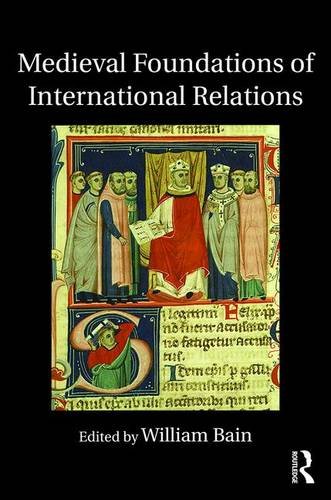

Most ebook files are in PDF format, so you can easily read them using various software such as Foxit Reader or directly on the Google Chrome browser.
Some ebook files are released by publishers in other formats such as .awz, .mobi, .epub, .fb2, etc. You may need to install specific software to read these formats on mobile/PC, such as Calibre.
Please read the tutorial at this link: https://ebookbell.com/faq
We offer FREE conversion to the popular formats you request; however, this may take some time. Therefore, right after payment, please email us, and we will try to provide the service as quickly as possible.
For some exceptional file formats or broken links (if any), please refrain from opening any disputes. Instead, email us first, and we will try to assist within a maximum of 6 hours.
EbookBell Team

5.0
108 reviewsThe purpose of this volume is to explore the medieval inheritance of modern international relations. Recent years have seen a flourishing of work on the history of international political thought, but the bulk of this has focused on the early modern and modern periods, leaving continuities with the medieval world largely ignored. The medieval is often used as a synonym for the barbaric and obsolete, yet this picture does not match that found in relevant work in the history of political thought. The book thus offers a chance to correct this misconception of the evolution of Western international thought, highlighting that the history of international thought should be regarded as an important dimension of thinking about the international and one that should not be consigned to history departments.
Questions addressed include:
Medieval and modern are certainly different; however, this collection of essays proceeds from the conviction that the modern world was not built on a new plot with new building materials. Instead, it was constructed out of the rubble, that is, the raw materials, of the Middle Ages.This will be of great interest to students and scholars of IR, IR theory and political theory.
.